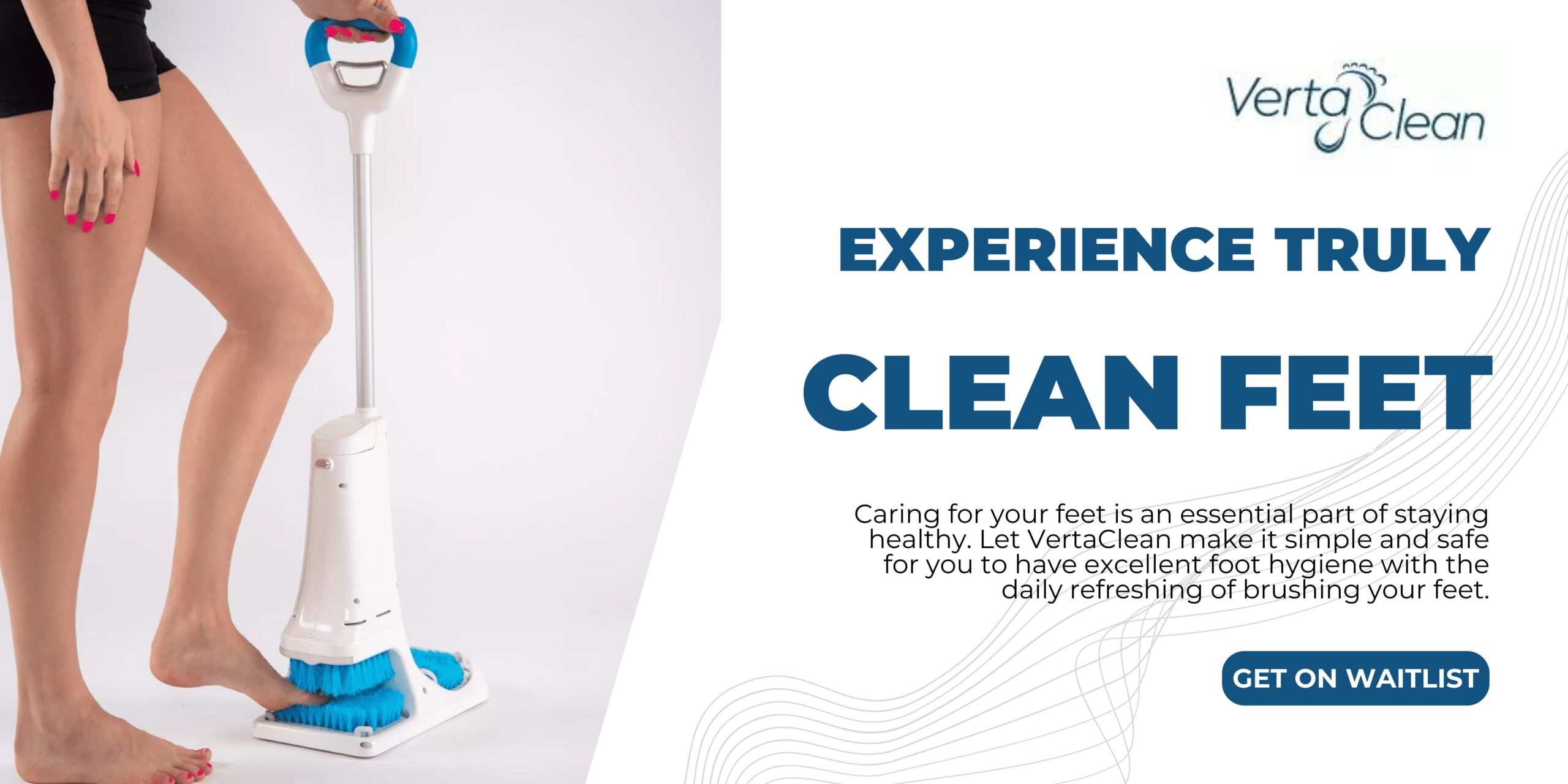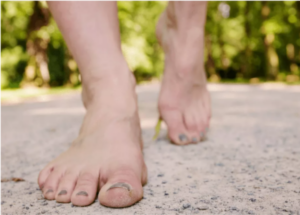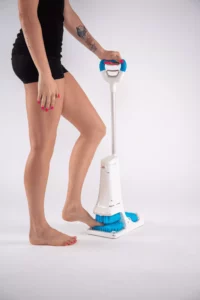Neuropathy, a complex condition characterized by nerve damage, often leads to pain, numbness, and tingling in the feet, significantly affecting a person’s quality of life. While various treatments are available to manage its symptoms, an intriguing question arises: Can a foot scrubber help manage neuropathy symptoms? This article explores the potential benefits and considerations of using foot scrubbers for individuals suffering from neuropathy. First, we delve into the causes and symptoms of neuropathy, setting the stage for understanding how targeted foot care may influence these symptoms. We then examine how foot scrubbing can enhance circulation, a crucial element in managing neuropathy, and discuss the specific impact of foot scrubbers on sensation and pain relief. Additionally, we will look at the different types of foot scrubbers that are suitable for neuropathy patients, considering the unique needs of sensitive feet. Finally, safety considerations and recommendations will be highlighted to ensure that those with neuropathy can use foot scrubbers effectively and safely, aiming to improve their foot health without exacerbating symptoms. Through this comprehensive exploration, we aim to provide valuable insights for those seeking alternative methods to alleviate the discomfort associated with neuropathy.
Understanding Neuropathy: Causes and Symptoms
Neuropathy refers to a condition involving damage or dysfunction of one or more nerves, typically resulting in numbness, tingling, muscle weakness, and pain in the affected area. The causes of neuropathy can vary widely, including diabetes (which leads to diabetic neuropathy), traumatic injuries, infections, metabolic issues, and exposure to toxins. One of the most common forms, peripheral neuropathy, affects the nerves outside of the brain and spinal cord, often impacting the extremities such as the feet.
The symptoms of neuropathy also vary depending on the type and location of the nerves involved. In many cases, symptoms include pain, tingling, and numbness in the limbs, particularly the feet. This can lead to difficulties in walking and a marked decrease in the quality of life. In severe cases, neuropathy can cause deep pain, burning sensations, muscle wasting, paralysis, or organ dysfunction.
Understanding the underlying causes and recognizing the symptoms early is crucial for managing neuropathy effectively. Early diagnosis and treatment can significantly lessen the severity of the symptoms and improve an individual’s quality of life. Managing neuropathy often involves a combination of medical treatment, lifestyle changes, and sometimes physical therapies, which might include tools like foot scrubbers to help stimulate circulation and reduce discomfort in the feet.
Benefits of Foot Scrubbing for Circulation Improvement
Foot scrubbing is often recommended as a gentle and effective way to enhance blood circulation in the feet, which can be particularly beneficial for individuals suffering from neuropathy. Neuropathy often leads to decreased blood flow in the extremities, which can exacerbate the numbness and pain associated with this condition. By improving circulation through foot scrubbing, it may help to nourish tissues with increased oxygen and nutrients, which are essential for healing and health maintenance.
The process of scrubbing the feet can stimulate the nerves, potentially providing relief from the numbness and tingling sensations frequently experienced by neuropathy patients. This stimulation can be seen as a form of massage, which has been noted for its therapeutic effects, including improved circulation. Enhanced blood flow not only helps in reducing symptoms but also supports the overall function of the feet by promoting healthier skin, reducing the risk of infections, and improving mobility.
Moreover, regular foot scrubbing can aid in the prevention of further complications such as foot ulcers, which are a common concern among those with diabetes-related neuropathy. By removing dead skin and keeping the feet clean and moisturized, the chances of skin breakdowns and subsequent infections are significantly minimized.
In conclusion, while foot scrubbing is not a cure for neuropathy, its role in improving circulation and promoting foot health makes it a valuable component of the management strategy for neuropathy symptoms. Patients should consult with a healthcare provider to ensure that they are using a technique and products that are safe and effective given their specific health conditions.
Impact of Foot Scrubbers on Sensation and Pain Relief
The impact of foot scrubbers on sensation and pain relief, particularly for individuals suffering from neuropathy, is a topic of considerable interest. Neuropathy, a condition characterized by nerve damage, often affects the feet, leading to symptoms such as numbness, tingling, and pain. The use of foot scrubbers can play a role in managing these discomforts.
Foot scrubbers, often designed with textured surfaces, can stimulate the nerves in the feet. This stimulation can be beneficial for neuropathy patients. The gentle scrubbing action helps to activate the nerve endings, which can decrease feelings of numbness and increase sensations in the feet. This improved sensation can help patients feel more balanced and secure while walking, potentially reducing the risk of falls.
Moreover, the act of scrubbing can also encourage better blood circulation in the feet. Improved circulation can bring more nutrients and oxygen to nerve cells, which can aid in the repair of nerve damage and alleviate pain. Regular use of a foot scrubber can be a simple yet effective way to provide relief from neuropathic pain and discomfort.
Additionally, the psychological benefits of self-care practices like foot scrubbing should not be underestimated. The process can be very soothing and may help reduce stress, which is often a complicating factor in chronic pain conditions. However, it is important for neuropathy patients to use foot scrubbers gently and to avoid over-exertion, which could potentially worsen their symptoms. Consulting with a healthcare provider before starting any new treatment regimen is also recommended to ensure safety and appropriateness.
Types of Foot Scrubbers Suitable for Neuropathy Patients
For individuals dealing with neuropathy, finding the right type of foot scrubber can make a significant difference in managing their symptoms. Neuropathy can cause numbness, tingling, and pain in the feet, making regular foot care important yet challenging. Therefore, choosing a foot scrubber that is gentle yet effective is crucial for those with sensitive foot conditions.
There are several types of foot scrubbers that are particularly suitable for neuropathy patients. Soft-bristled brushes are often recommended because they provide a gentle scrub that is less likely to irritate sensitive skin and nerves. These brushes can help remove dead skin and improve circulation without causing discomfort.
Another good option is silicone scrubbers, which are soft, flexible, and easy to clean. They are gentle on the skin and can be used with or without soap to massage and cleanse the feet, enhancing blood flow while minimizing risk of skin damage.
Electric foot scrubbers can also be beneficial for neuropathy patients, especially those with limited mobility. These devices usually feature adjustable speeds and come with different types of attachments to customize the level of scrubbing. However, it is important for neuropathy patients to use such devices with caution to avoid excessive pressure that could lead to injuries.
In conclusion, while foot scrubbers can be an effective tool for managing neuropathy symptoms, selecting the right type is essential. Gentle, easy-to-use scrubbers that enhance circulation without aggravating the feet are ideal. Neuropathy patients should always consult with a healthcare provider before starting any new foot care regimen to ensure that it is safe and appropriate for their specific condition.
Safety Considerations and Recommendations for Using Foot Scrubbers with Neuropathy
When it comes to managing neuropathy, particularly in the feet, careful consideration must be given to all aspects of foot care. Neuropathy, a condition characterized by nerve damage that can lead to numbness, pain, and sensitivity in the feet, requires specific strategies to maintain foot health. Using foot scrubbers can be beneficial, but it comes with particular safety considerations and recommendations.
Firstly, individuals with neuropathy should ensure that the foot scrubber they choose is gentle. Since neuropathy can cause a loss of sensation, a scrubber that is too abrasive might cause skin damage without the individual realizing it. It is essential to choose a foot scrubber with soft, fine bristles or a very gentle abrasive surface. Additionally, checking the feet for any abrasions or irritation following their use is crucial, as individuals with neuropathy may not feel these minor injuries.
Hygiene is another critical factor. Foot scrubbers should be kept clean and dry to prevent the growth of bacteria and fungi, which can lead to infections, particularly in someone with reduced sensation from neuropathy. It is advisable to clean the scrubber regularly and allow it to dry completely between uses.
Consulting with a healthcare provider before starting any new foot care regimen is also highly recommended for those with neuropathy. A healthcare provider can offer personalized advice and ensure that the use of a foot scrubber is appropriate given the individual’s specific health conditions and neuropathy severity.
Lastly, moderation is key. While regular use of a foot scrubber can help in improving circulation and removing dead skin cells, overuse can lead to skin breakdown or irritation. Individuals with neuropathy should be cautious and perhaps limit the use of scrubbers to a few times a week, depending on their personal sensitivity and health status.
In conclusion, while foot scrubbers can be a valuable tool for managing neuropathy symptoms, they must be used carefully and wisely, respecting the delicate nature of neuropathic feet to avoid potential complications.




